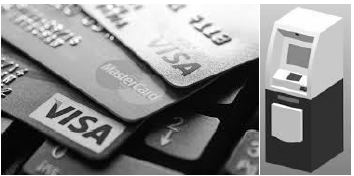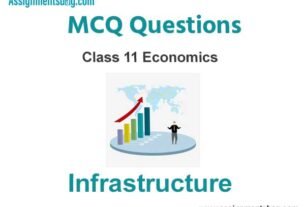Please refer to MCQ Questions Chapter 8 Sources of Business Finance Class 11 Business Studies with answers provided below. These multiple-choice questions have been developed based on the latest NCERT book for class 11 Business Studies issued for the current academic year. We have provided MCQ Questions for Class 11 Business Studies for all chapters on our website. Students should learn the objective based questions for Chapter 8 Sources of Business Finance in Class 11 Business Studies provided below to get more marks in exams.
Chapter 8 Sources of Business Finance MCQ Questions
Please refer to the following Chapter 8 Sources of Business Finance MCQ Questions Class 11 Business Studies with solutions for all important topics in the chapter.
MCQ Questions Answers for Chapter 8 Sources of Business Finance Class 11 Business Studies
Question. Investors who want steady income may not prefer __________
(a) Bonds
(b) Equity Shares
(c) Debentures
(d) None of the above
Answer
B
Question. The ordinary shares of a company are delivered to the depository bank, which in turn issues the depository receipts, known as _____
(a) Commercial banks
(b) ADR
(c) None of these
(d) GDR
Answer
D
Question. The maturity period of a commercial paper usually ranges from
(a) 20 to 40 days
(b) 60 to 90 days
(c) 120 to 365 days
(d) 90 to 364 days
Answer
D
Question. Equity shareholders are called
(a) Owners of the company
(b) Partners of the company
(c) Executives of the company
(d) Guardian of the company
Answer
A
Question. Fixed capital requirement are generally used to purchase_________:
(a) Fixed asset
(b) Current asset
(c) Cash
(d) All of the above
Answer
A
Question. __________ was the first company in India to issue convertible zero interest debentures in January 1990
(a) Reliance Limited
(b) Adani Enterprise
(c) Tata Motors
(d) Mahindra and Mahindra
Answer
D
Question. State Industrial Development Corporations were established by ______
(a) Ministry of Finance
(b) None of these
(c) Central Government
(d) Different States
Answer
D
Question. A person who purchases the common stock of a corporation is known as:
(a) Preferred stockholder
(b) Creditor
(c) Bondholder
(d) Common stockholder
Answer
D
Question. When one party grants the other party the right to use the asset in return for a periodic payment, it is known as _______
(a) Lease Financing
(b) Factoring
(c) Public Deposits
(d) Debts
Answer
A
Question. Expand ICICI
(a) Indian Credit and Investment Corporation of India
(b) International Credit and Investment Corporation of India
(c) Industrial Credit and Investment Corporation of India
(d) None of the above
Answer
C
Question. ICICI was established in
(a) 1985
(b) 1975
(c) 1965
(d) 1955
Answer
D
Question. On the basis of ownership funds are classified into_____types:
(a) 3
(b) 2
(c) 4
(d) 5
Answer
B
Question. Commercial papers can be issued only by large and creditworthy companies because
(a) It is protected by the Government
(b) It is an Unsecured Debt
(c) It is Fully Secured Debt
(d) None of the above
Answer
B
Question. Unit Trust of India was established by ________
(a) ICICI
(b) State Bank Group
(c) Indian Government
(d) HDFC Bank
Answer
C
Question. Which of the following is not a feature of a Joint Stock Company?
(a) Artificial person
(b) Separate legal entity
(c) Formation
(d) Lack of business continuity
Answer
D
Question. Industrial Finance Corporation of India (IFCI) was established in _______
(a) July, 1948
(b) July, 2001
(c) July, 1956
(d) July, 1991
Answer
A
Question. Preference shares and debentures comes under the category of:
(a) Short term funds
(b) External source of funds
(c) Long term funds
(d) Both B and C
Answer
D
Question. _________is called the lifeblood of any business enterprise:
(a) Profit
(b) Loss
(c) Finance
(d) Assets
Answer
C
Question. Life insurance corporation was set up in ________
(a) 1985
(b) 1975
(c) 1956
(d) 1965
Answer
C
Question. Trade credit comes under the category of:
(a) Short term funds
(b) Long term funds
(c) Internal sources of funds
(d) Owner’s fund
Answer
A
Question. Shares are normally of_____types:
(a) 3
(b) 4
(c) 2
(d) 1
Answer
C
Question. Internal sources of capital are those that are
(a) Generated through outsiders such as suppliers
(b) Generated through the issue of shares
(c) Generated through a loan from commercial banks
(d) Generated within the business
Answer
D
Fill in the Blanks:
Question. Funds needed for the day to day operations is called _________ capital. working
Answer
Question. The rate of interest on the Inter Corporate Deposits is __________ than, that of banks. Higher
Answer
Question. Funds required to purchased _________ assets is called fixed capital requirement. fixed
Answer
Question. Preference shareholders have a _________ right of repayment over equity shareholders in the event of liquidation of a company. preferential
Answer
Question. Debentures bear a _________ rate of interest. Fixed
Answer
True / False:
Question. The procedure of obtaining funds from commercial banks is complex.
Answer
True
Question. Funds required for purchasing current assets is an example of lease financing.
Answer
False
Question. The equity share capital is a prerequisite to the creation of a company.
Answer
True
Question. FCCB?s are listed and traded in foreign stock exchanges
Answer
True
Question. The rate of dividend on preference shares is generally lower than the rate of interest on debentures.
Answer
False
Match the following:
Question. Match the following sources of finance on the basis of Meaning:
| 1. Debentures | (a) Bank Loan |
| 2. Debentureholders | (b) It is an written acknowledgement of debt |
| (c) Those persons having debentures | |
| (d) Owners equity |
Answer
1- b; 2- c
Question. Match the following instruments on the basis of source of raising funds:
| 1. Inter Corporate Deposits | (a) Public |
| 2. Public Deposits | (b) Company |
| (c) Government |
Answer
1- c; 2- a
Question. Match the following terms on the basis of their features:
| 1. Interest | (a) FCCB’s |
| 2. foreign stock exchange | (b) Debentures |
| (c) Legal compulsory payment for debt taken by the company | |
| (d) It is not a Legal compulsory payment for debt taken by the company |
Answer
1- c; 2- a
Question. Match the following financial instruments on the basis of concept:-
| 1. Charge on assets | (a) Interest |
| 2. TDS deductible | (b) Debentures |
| (c) Equity shares | |
| (d) Dividend |
Answer
1- b; 2- a
Question. Match the following financial instruments on the basis of concept:-
| 1. Debentures | (a) These are issued in a foreign currency |
| 2. Foreign Currency Convertible Bonds | (b) They create charge on assets |
| (c) They Don’t create charge on assets | |
| (d) These are Don’t issued in a foreign currency |
Answer
1- b; 2- a
Pictorial Questions:
Question. Identify the banking services offered by the commercial banks in the given pictures:

Answer
ATM & E Banking
Question. Identify the type of security traded in the given market:

Answer
Foreign Currency Convertible Bonds
Question. Which of the following business require higher amount of fixed capital?

Answer
A
Question. Name the kind of return on investment given to the investors shown in the given picture:

Answer
Dividend
Question. Identify the mode of payment other than, shown in the picture:

Answer
Credit

We hope you liked the above provided MCQ Questions Chapter 8 Sources of Business Finance Class 11 Business Studies with solutions. If you have any questions please ask us in the comments box below.


